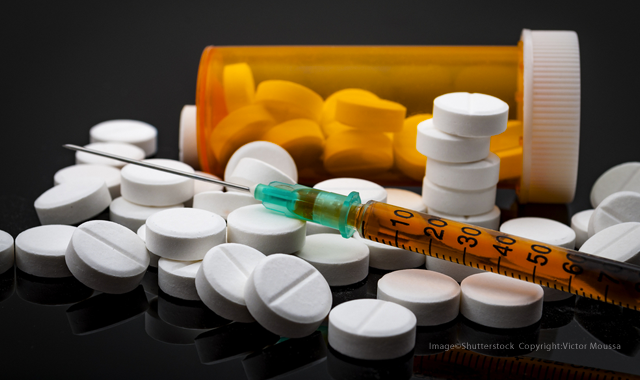How the opioid crisis affects oral health
These helpful tips could help patients who routinely use opioids.

The opioid crisis is reaching epidemic proportions in the United States, and the number of opioid-related deaths has risen steadily for years, according to the National Institute on Druge Abuse.
Those addicted can experience numerous side effects, such as a weakened immune system, hallucinations and clogged blood vessels.
And if those problems weren’t bad enough, those who routinely use opioids face another potential health problem: dry mouth that can lead to troubling and serious oral-health conditions.
“Dry mouth is literally a lack of saliva or diminished production of saliva, and opioids are a contributor to this problem,” says Dr. Harold Katz, a dentist and bacteriologist.
That might not sound so bad until you remember that the body produces saliva for a reason. It helps prevent tooth decay, gum disease and bad breath, and also lubricates the mouth, making it easier to eat, swallow, speak and taste food.
“Sometimes dry mouth might just cause mild discomfort,” Katz says. “At other times it can lead to significant oral disease that can compromise the person’s health, dietary intake and quality of life.”
Plenty of things can lead to dry mouth, but opioids are one cause starting to get more attention in dental offices – where dentists are also concerned about over prescribing pain killers. Some opioids, such as oxycodone, codeine, and morphine, are prescription pain medications. Other opioids, including heroin, are illegal.
Related reading: Are dentists prescribing too many opioids?
Katz offers tips to those who suffer from dry mouth, such as:

Drink more water. Katz suggests at least six to eight glasses a day, which comes to about 48 to 64 ounces assuming an 8-ounce glass.
Avoid alcohol. This advice isn’t limited to just alcoholic beverages, although it’s important to avoid them, too. But some mouthwashes are as much as 27 percent alcohol, Katz says. Alcohol is actually one of the causes of dry mouth.
Avoid spicy, acidic and sugary foods. Without saliva there to offer some protection to the lining of the mouth, spicy and acidic foods can be irritating. In addition, saliva helps to break down the sugar in foods. If the saliva isn’t there to properly do that job, then there’s an increase in the risk of such dental problems as tooth decay.
Use a dry mouth rinse. Such rinses help moisturize the mouth and can increase the flow of saliva.
“If you suspect your dry mouth is caused by your prescription medication, let your doctor or pharmacist know what is happening,” Katz says. “They may be able to make other suggestions that will help.”